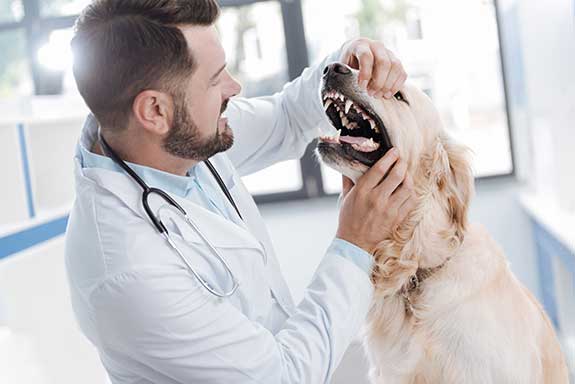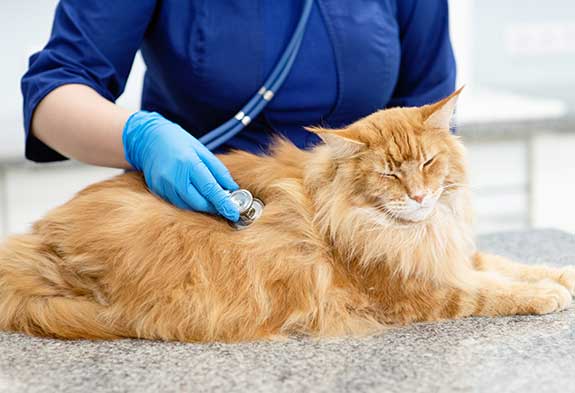The Importance of Regular Vet Checkups

When you notice that your pet is sick or injured, you don't hesitate to take them straight to the vet so that they can receive the care that they need. However, it's also important to keep up with your pet's regular checkups, even when they appear to be completely healthy.
WHY ARE ROUTINE VISITS SO IMPORTANT?
There are many reasons why regular checkups at the vet are vital to your pet's well-being. The first is that physical exams reveal a lot of information about your pet's overall health. Even if everything looks fine to you, a veterinarian will be able to examine your pet more thoroughly and may find things that you might not necessarily be aware of. This can help prevent any minor problems from progressing to more serious issues.
When your pet goes in for a routine exam, the vet will examine their eyes and ears to make sure that everything is working properly and that there are no signs of infection. Ear infections are quite common in both cats and dogs due to ear mites or bacteria. If left untreated, an ear infection can become quite painful.
A vet will then go on to check your pet's heart and lungs with a stethoscope and look for any signs of cardiac disease. In addition, a vet will massage your pet's abdomen to check their organs for any masses and to make sure nothing is enlarged or inflamed. They will also look over their skin and fur to make sure that nothing is irritated and that there are no infections.
Dental hygiene is another reason why it's important to take your dog or cat in for regular checkups. Because dogs and cats often don't like their teeth being brushed and having things stuck in their mouth, it can be hard to give their teeth and gums the proper care and cleaning they need. According to 1800petmeds.com, 8 out of 10 dogs have some sort of dental problem. Bacteria and diseases in your pet's mouth can easily escalate and spread to their other organs. Therefore, it's important for their teeth, gums, and mouth to be inspected regularly by a veterinarian.

Veterinarians will also perform various tests to ensure there are no other issues going on that you may not be able to see on the surface. Blood work can reveal some of the first signs of illness while a urinalysis and fecal exam will allow the vet to see if your pet has any issues with their urinary tract, kidneys, or gastrointestinal tract. Additionally, a vet may perform an annual heartworm test to see if your pet has any parasites or diseases from ticks.
All of this testing and examining is done in order to catch problems early. When a vet is able to identify and diagnose an issue early on, there is a better chance of your pet being able to recover fully with the proper treatment.
In addition to screening their overall health, another reason why routine visits are important is that they allow your pet to stay up to date on their vaccinations. This is especially important if your pet is spending any amount of time outside or around other animals. Diseases can spread easily among dogs, cats, and animals in the wild. Vaccines will help keep them protected from getting sick and spreading illnesses to other pets and possibly even you (such as zoonotic diseases that spread from animals to humans). Taking your pet to the vet regularly will be able to keep them on a schedule of getting all of their vaccinations at the proper times and ensuring they're still healthy overall.
HOW OFTEN SHOULD I TAKE MY DOG OR CAT TO THE VET?

The number of times you bring your pet to the vet per year should change as they grow older. Young puppies and kittens will need to go in more often to follow their vaccination schedules and to continuously monitor their growth. Adult dogs and cats should see the vet at least once per year for their annual wellness exam. Senior pets may need to go in more often (every 6 months or so) depending on what your vet recommends.
CONCLUSION
As you can see, there are many reasons why it's important for your pet to have regular checkups at the vet. Don't neglect to take them in just because they do not appear to be sick. Keeping your pet's vaccinations schedule on track and catching problems early on is important in making sure that they stay healthy and continue to live the longest, happiest lives possible.
Sources:
- https://bvspca.org/why-are-regular-vet-appointments-important/
- https://www.1800petmeds.com/education/importance-routine-vet-visits-23.html
- https://www.animalbehaviorcollege.com/blog/health/the-importance-of-regular-vet-visits/
- https://www.aaha.org/your-pet/pet-owner-education/ask-aaha/why-are-regular-veterinary-visits-important/
- https://www.rover.com/blog/how-often-take-dog-to-vet/
- http://blog.petmeds.com/ask-the-vet/zoonotic-diseases/
Previous article

Next article

Related posts
View all-

What Can You Use Instead of Cat Litter?
Traditional cat litter is convenient, but it’s not the only option. Many cat owners look for alternatives to reduce waste, save money, or avoid chemicals found in clay-based kitty litter. Some options offer better odor control, while others are more eco-friendly or gentler on a cat’s paws.
Read Article -

How to Keep My Backyard Smelling Fresh
A clean backyard should smell fresh, unlike pet waste, smoke, or mold. Bad smells can linger, especially when dog poop, urine, or food scraps attract flies and bacteria. If your yard has a foul odor, it's time to take action. The first step is cleaning up pet feces, trash, or rotting food. A garden hose can wash away dirt and urine from artificial turf, patios, and decks. To neutralize odor, Use baking soda, white vinegar, and essential oils.
Read Article -

What Supplies Do First-Time Cat Owners Need?
Bringing home a new cat is exciting, but making them feel safe and comfortable takes more than love. First-time cat owners must prepare with the right supplies to ensure a smooth transition. From a litter box to cat food and a warm bed, having the basics ready can help your new kitty settle in faster. This guide covers everything a new cat owner needs to make their new pet feel at home.
Read Article



